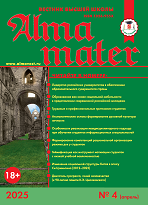UDC 316.4:376
https://doi.org/10.20339/AM.12-19.022
T.V. Sklyarova is Cand.Sci. (Sociology), doc., head of department e-mail: skliarovatv@gmail.com; D.V. Zaitsev is Dr.Sci. (Sociology), prof. e-mail: zaitsevd@bk.ru at Saratov State Technical University n.a. Yu.A. Gagarin; and O.V. Zaitseva is Cand.Sci. (Jurisprudence), doc. at Saratov State Law Academy
Discussed if the problem of inclusion of children-invalid into society. Education is one of the main institutions of social inclusion, a social lift for children with disabilities. At the same time, modern education remains highly risky and in some cases generates social problems. Inclusion is seen as resource for changing the life of disabled child, his family, and significant changes in education, social services and social protection systems. The article presents the authors’ analysis of the process of inclusion of children with disabilities from point of view of criticism of modern Russian social policy, incl. the field of education. Current legislation does not reflect effective mechanisms for creating inclusive environments and in many ways declaratively.
Key words: inclusive education, equality of rights, tolerance, social policy, inclusion, children with disabilities, accessible environment.
References
1. Levi-Strauss K. Structural Anthropology. Moscow, 1985.
2. Sklyarova, T.V. Social education in the conditions of globalization and multiculturalism. URL: http://gisap.eu/ru/node/22521#comment-22669
3. Giddens, E. Sociology. URL: https://www.gumer.info/bibliotek_Buks/Sociolog/gidd/
4. Kutepova, E.N., Suntsova, A.S. Theoretical analysis of the problem of inclusive education in modern scientific research. Herald of Cherepovets state university. 2016. No. 2. P. 105–110.
5. Spector, M., Kitsuse, J. Constructing Social Problems. New York, 1987. P. 1–8, 73–79, 142.
6. Federal law of December 29, 2012 No. 273-Fz “On Education in the Russian Federation”. URL: http://base.garant.ru/70291362/#ixzz3QTyIP839
7. Federal law “On basic guarantees of children’s rights in Russia”, no. 124-Fz Ed. 02.12.2013. URL: https://fzrf.su/zakon/ob-osnovnyh-garantiyah-prav-rebenka-124-fz/
8. Federal law “On social protection of disabled people in Russia”, no. 181-Fz in ed. 04.01.1999. URL: https://fzrf.su/zakon/o-socialnoj-zashchite-invalidov-181-fz/
9. National Educational Initiative “Our School”. URL: http://s14004.edu35.ru/documents/58
10. National Strategy for Children 2012–2017. URL: http://www.kremlin.ru/acts/bank/35418
11. Dream Child Development Center. URL Access Mode: https://vos-ds61-mechta.edumsko.ru/activity/inclusive/post/221243
12. Gerasimov, V.N. Legal and Social Support for Families with Disabled Children // Social and Pension Law. 2011. No. 3. P. 15–20.
13. Grigorieva, I., Pervova, I. Inequality in accessibility of social services: international context. Journal of Social Policy Research. 2015. No. 2. P. 24–26.
14. Guzairov, V.Sh. Social Policy of modern Russia. Belgorod, 2013.
15. Declaration of Human Rights. URL: http://www.un.org/ru/documents/decl_conv/declarations/declhr
16. Durkheim, E. Sociology of Education. Moscow, 1996.
17. Inclusion as a principle of modern social education policy: implementation mechanisms. Moscow, 2008.
18. Lubimova, A. Problems of exclusion and inclusion in social policy. Journal of Social Policy Studies. 2012. No. 4.
19. Machulskaya, E.E. The concept of disability in international and Russian regulations. URL: https://demo.consultant.ru/cgi/online.cgi?req=doc&ts=1791411593024984382833327667&cacheid=8E5D641DC89050174719F0DF34A569BD&mode=splus&base=CJI&n=92137&rnd=D4ACF5E46BC3E6A375C60EEABF75E250#09135274354798226
20. Ogurtsova, M.L. Prosecutor's Supervision of the Right of Children with Disabilities to Education. URL: https://demo.consultant.ru/cgi/online.cgi?req=doc&ts=1791411593024984382833327667&cacheid=8E5D641DC89050174719F0DF34A569BD&mode=splus&base=CJI&n=96283&rnd=D4ACF5E46BC3E6A375C60EEABF75E250#08640641921523247
21. Ponomareva, G.T. Inclusive education in Russia. Higher school pedagogy. 2017. No. 2 (8). P. 59–62.
22. Rezaev, A., Smirnova, A., Tregubova, N. Inequality and social exclusion in everyday communication: theoretically grounds and consequences for social policy. Journal of Social Policy Studies. 2015. No. 2. P. 54–56.
23. Social Policy of Modern Russia: sociological analysis of inclusion trends. Saratov, 2010.
24. Starobina, E.M. Highlights of the UN Convention on the Rights of Persons with Disabilities as the basis for improving the vocational education of students with disabilities. URL: https://cyberleninka.ru/article/n/osnovnye-polozheniya-konventsii-oon-o-pravah-invalidov-osnova-dlya-sovershenstvovaniya-professionalnogo-obrazovaniya-studentov-s











.png)






